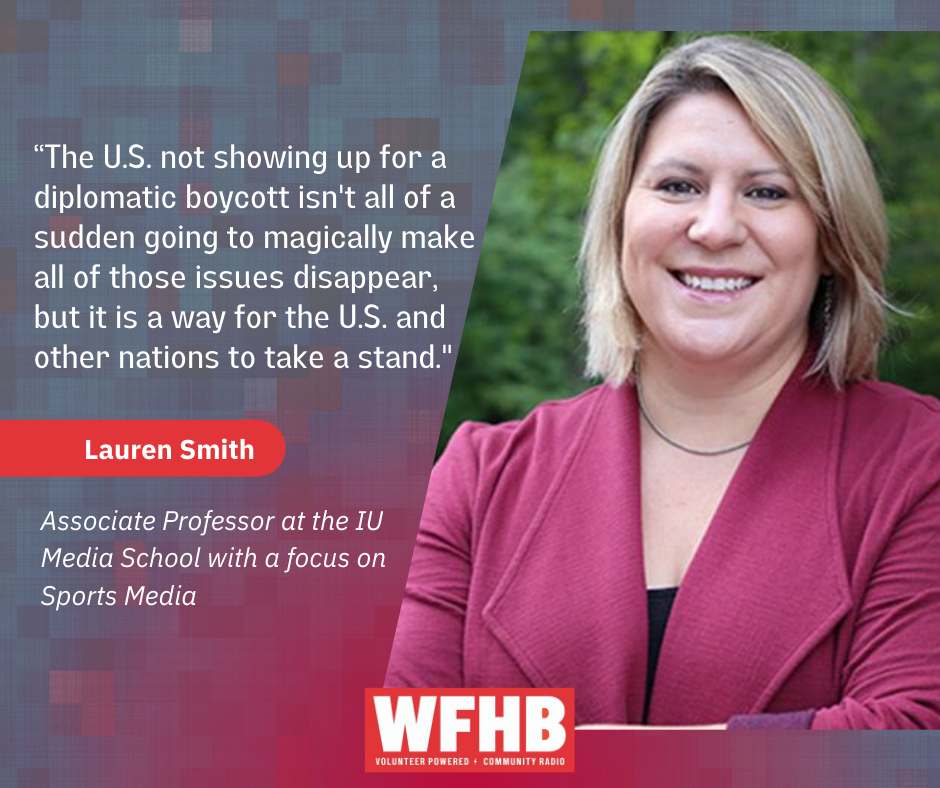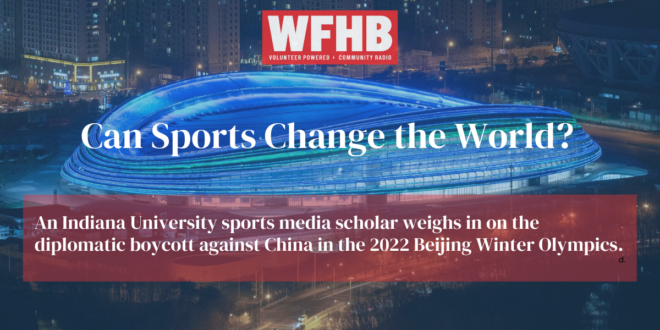Podcast: Play in new window | Download (Duration: 6:30 — 9.0MB)
An Indiana University sports media scholar weighs in on the diplomatic boycott against China in the 2022 Beijing Winter Olympics.
The United States will not send officials to the 2022 Winter Olympics in Beijing as a protest to China’s “ongoing genocide and crimes against humanity in Xinjiang and other human rights abuses.”
Human rights groups accuse China of detaining more than one million Uyghurs – the largest ethnic minority group in the province of Xinjiang and placing them in a network of “re-education camps.” Hundreds of thousands were sentenced to prison terms. Allegations range from torture, sexual abuse and even genocide.
Several nations have followed suit after the announcement from the President Biden Administration, including Canada, the U.K. and Australia. Lauren Smith, Associate Professor at the IU Media School with a focus on sports media, says the diplomatic boycott can begin the conversation.

“The U.S. not showing up for a diplomatic boycott isn’t all of a sudden going to magically make all of those issues disappear,” said Smith, “but it is a way for the U.S. and other nations to take a stand and say we don’t agree with what is going on.”
Smith says that sports and politics have remained intertwined — since the dawn of organized sports. She pushes back against the idea that ‘you should leave politics out of sports.’
“If you go back to the first Olympics, if you go back to the Greek city states, sport was a means for political leaders to get together and discuss diplomatic issues,” says Smith. “They’re intertwined all the way from public funding of stadiums to protests.”
She gave examples of how sports influenced political change throughout history. Smith argued that progress often happens in sports before it’s reflected in policy.
“Jackie Robinson breaking the color barrier in baseball happened less than a decade before Brown versus the Board of Education,” she said. “In the past couple years, we really started to have more conversations about mental health and we can point to athletes for that.”
While the U.S. will issue a diplomatic boycott, it does not apply to athletes. Athletes may still participate in the winter games. In 1980, the United States boycotted the Moscow Olympics over Cold War tensions. Athletes were not allowed to participate. Smith said the boycott didn’t lead to any political change, and it seemed to only penalize athletes.
“Athletes stayed home and nothing got done. There may have been a conversation or two, but ultimately it didn’t lead to wide scale political change. While I think sport is a place that can open up conversations or lead to change, I don’t necessarily think holding the athletes back from participating in the Olympics is the right move to do that,” said Smith.
All in all, Smith agrees with the diplomatic boycott. She described it as a “smart and strategic move” given the world stage the Olympics has to offer.
“This is an event that the entire world will tune into and watch in some form, and so to take a stand and say we are not participating – that news filters out from outside just the US. It reaches other countries, it reaches other leaders, it reaches other individuals that can take a stand.”
While sports and politics are indeed intertwined, the future can only determine whether or not the diplomatic move will lead to political change.
 WFHB Bloomington Community Radio
WFHB Bloomington Community Radio


